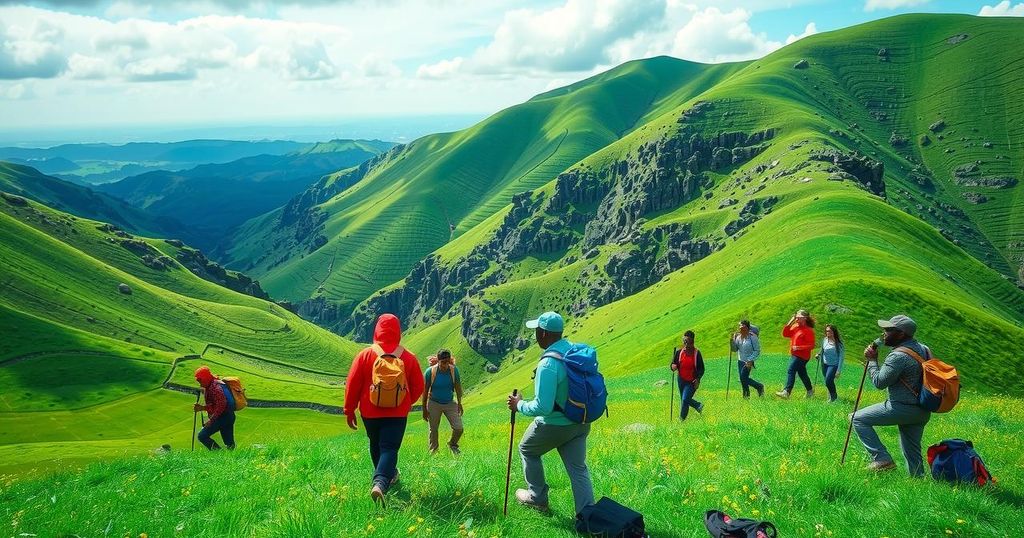Armed Attacks Kill 28 in Northern Nigeria

- Twenty-eight people have been killed recently in northern Nigeria.
- Attacks by armed groups highlight insecurity in rural areas.
- Naija Adventurers is organizing hikes for city residents in Abuja.
- Hikers face safety issues but enjoy a sense of community on trails.
- Efforts are being made to enhance outdoor recreation in Nigeria.
Latest Armed Attacks in Northern Nigeria Reported
Deadly armed attacks have claimed the lives of 28 people in northern Nigeria, according to reports from military officials and local sources. Lieutenant Colonel Olaniyo Osoba, a spokesman for the Multinational Joint Task Force (MNJTF), confirmed that 11 individuals were killed on Thursday in an assault on Malam Fatori, a town close to the Niger border. This incident occurred when armed men targeted a camp for internally displaced persons, prompting a response that eventually led to Nigerian forces regaining control of the area.
Villagers Targeted During Prayer Time
In a separate incident, another assault in Kwalajiya village, in Sokoto State, of northwestern Nigeria resulted in the deaths of 17 people, primarily farmers. The attack took place as villagers gathered for their afternoon Asr prayer, illustrating the ongoing vulnerability of rural communities to violence from armed groups. This wave of unrest, highlighted by the lethal attacks on innocent civilians, points to a grim reality that many in northern Nigeria face daily.
Hiking Groups Offer Escape from Urban Challenges
Away from the turmoil of violence, many citizens in Abuja have turned to hiking groups as a way to cope with the stress of living in a region afflicted by insecurity. Adebayo Babatunde, founder of the Naija Adventurers group, expressed frustration over the lack of properly mapped trails in the area. This group, like several others, has stepped up to arrange organized hikes in a city bordered by natural beauty but lacking accessible public trails.
Safety Measures in Place for Outdoor Activities
The recent excursion organized by Naija Adventurers attracted over 400 participants, who tackled a 1.5-mile trek across rugged terrain. For many like Jeremiah Makpum, a regular hiker, the experience yields both fitness and a sense of safety—an important factor in a country where violent attacks, including kidnappings, are frequent. Interestingly, while the precise locations of these hikes are kept secret until the day of the event, security is a priority, necessitating the involvement of armed security personnel during adventures.
Vibrant Culture Surrounds Hiking Events
The hikes, while meant for rejuvenation and relaxation, are often filled with energy and enthusiasm, somewhat contrary to the meditative solitude some participants might expect. Participants have been known to carry portable speakers, set up impromptu dance parties, or engage in fitness classes at rest stops. At the same time, local vendors bring their goods to meet the enthusiastic crowd, further highlighting the social dynamic around these hiking events.
Connecting Urbanites with Nature
Despite the urgency of urbanization, many individuals from less privileged backgrounds find themselves disconnected from the natural scenery surrounding them. Kingsley Uche, founder of Kay Hikers, emphasized Nigeria’s tourist potential, lamenting the minimal government support for developing outdoor recreation areas. Though there are national parks, they remain underutilized and often not well maintained due to poor infrastructure and safety concerns.
Efforts to Formalize Hiking Trails Continue
The rise of outdoor groups like Naija Adventurers and Kay Hikers shows there is a growing interest in reconnecting with nature. However, organizers have pointed out that most trails in Nigeria are informal, shared primarily through word of mouth. Adeyemi mentioned their ongoing dialogue with government representatives to ensure hiking paths are officially mapped and accessible for all, representing a small but significant shift towards valuing outdoor recreation in Nigeria.
The loss of life from recent armed attacks in northern Nigeria underscores the ongoing security crisis in the region, where communities remain vulnerable to violence. In contrast, hiking groups such as Naija Adventurers and Kay Hikers are emerging as a beacon of hope, fostering a connection to the natural environment for urban residents. Despite efforts to promote these outdoor activities, challenges such as the need for government support and improved trail safety remain pressing concerns.







